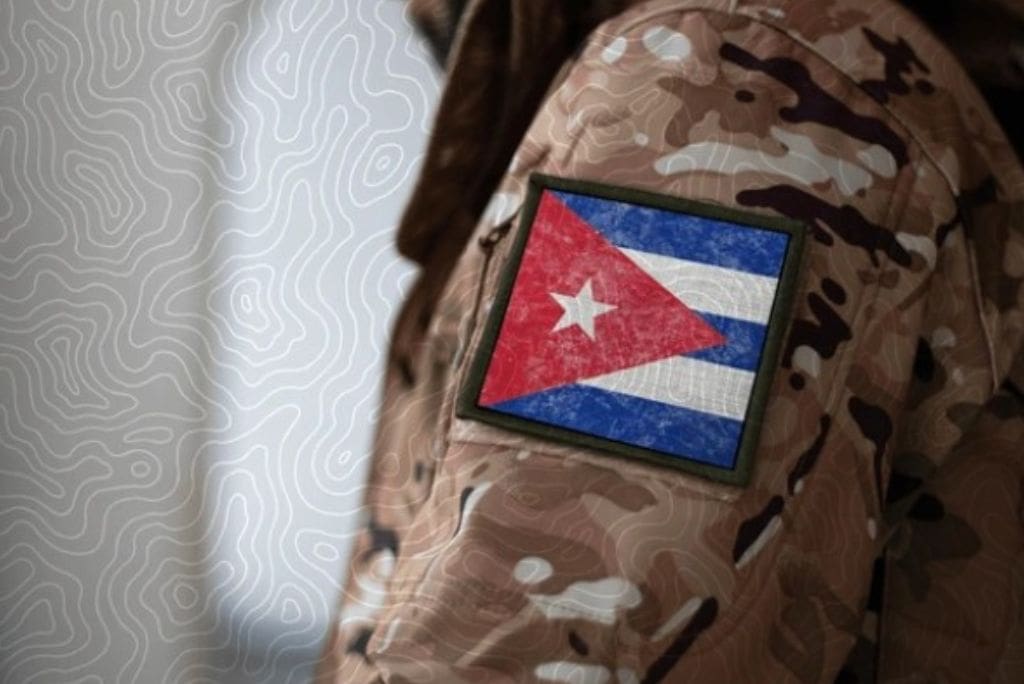From Miami’s Exiles to Ukraine’s Trenches
In Miami, we recently spoke with a Ukrainian citizen who was blunt: “A significant number of Cubans are fighting on behalf of Russia.” His certainty echoes what is now surfacing through intelligence leaks, investigative journalism, and testimonies.
This is not hearsay alone. It fits a wider pattern: a regime under economic collapse, an ally in need of soldiers, and a recruitment network that stretches from Havana to Tula.
For the first time since Angola in the 1970s, large numbers of Cubans are again fighting in a foreign war—not under their flag, but under Russia’s.
Evidence of Cuban Fighters in Ukraine
- Initial reports (2023): In May 2023, Russian outlets in Ryazan reported Cubans signing contracts with the Russian Army in exchange for citizenship. By summer, videos surfaced of young Cubans claiming they had been deceived into combat.
- Recruitment networks: In September 2023, Cuba’s government announced it had uncovered a trafficking ring and arrested 17 individuals.Yet evidence of continued flows emerged soon after, raising doubts about Havana’s sincerity.
- OSINT confirmation: RFE/RL’s investigative unit Schemes documented Cuban recruits training at Russia’s 106th Guards Airborne Division in Tula, using social media geolocation and satellite imagery.
- Ukrainian estimates: A Ukrainian diplomat told The Wall Street Journal in February 2024 that around 400 Cubans were on the front. Another MP cited 1,500–3,000. By June 2025, El País, citing Ukraine’s GUR intelligence, reported a cumulative 20,000 recruits since 2022, with 6,000–7,000 active at any given time. These figures remain unverified by Western intelligence but indicate the scale of concern.
Roles, Recruitment, and Exploitation
Cuban fighters are not in rear posts—they are infantry in Kherson, Donbas, and Bakhmut. Casualties, like that of 21-year-old Raibel Palacio (killed in Kherson in late 2023), confirm their presence on the front lines.
Recruitment tactics are strikingly consistent:
- Promises: Roughly $2,000–$2,500 monthly pay and Russian citizenship.
- Reality: Minimal training, poor equipment, and unpaid wages. Some recruits discovered that upon receiving citizenship, they could be mobilized indefinitely.
- Deception: Many were told they would work in construction or security. One recruit told Politico they had “signed a contract with the devil”.
Ukrainian officials claim as much as 40% of these recruits may be from Cuba’s own military or security services—a serious allegation that remains conteste.
Why the Secrecy?
- Havana: Maintains plausible deniability, framing fighters as trafficking victims. Open acknowledgment could spark domestic outrage and international sanctions.
- Moscow: Foreign fighters fill manpower gaps but admitting reliance undermines Putin’s narrative of patriotic mobilization.
- Kyiv: Highlights Cuban involvement selectively, often to EU and Hispanic American audiences, but avoids overemphasis to keep the spotlight on Moscow and Tehran.
Geopolitical Motives
1. Economic lifeline: Russia has forgiven billions in Cuban debt and supplies vital oil. Sending manpower is Havana’s way of paying back.
2. Strategic alignment: Supporting Moscow signals anti-American solidarity, consistent with Havana’s worldview.
3. Domestic pressure relief: Exporting unemployed or disaffected youth reduces potential unrest at home.
4. Manpower as currency: If GUR estimates hold, Cuba is exporting fighters at a scale not seen since Cold War interventions—though this time for cash and passports, not ideology.
The Return of Cuba’s Expeditionary Legacy
If Ukrainian intelligence is correct, Cuba’s covert role in Ukraine represents the largest overseas deployment of Cuban nationals since Angola. Whether hundreds or tens of thousands, the phenomenon is undeniable: Cubans are fighting—and dying—for Russia.
This is both a tragedy and a warning. For Moscow, Cubans are expendable reinforcements. For Havana, they are bargaining chips for oil and credit. For the West, they are a reminder that the Ukraine war is not Europe’s crisis alone—it is a global proxy war pulling in actors from the Caribbean to the Korean Peninsula.
The views expressed in this article are those of the author and do not necessarily represent the official position of Gateway Hispanic.
About The Author
Read the full article here
